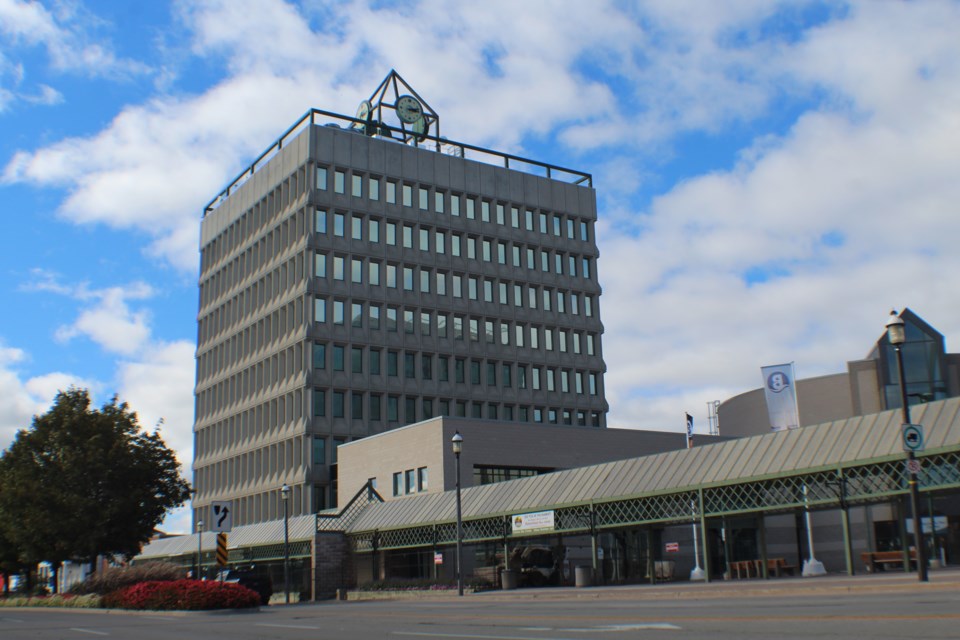Transparency is one of those words governments and their agencies toss about like nickels when they should be thrown around like manhole covers.
Or is that person-hole covers, in case the word police are listening or perhaps bugging this column?
Anyway, transparency is a word officials use when they’re trying to convince us they have nothing to hide and all of their cards are on the table for me and you to see.
But real transparency is rare because the powers that be are unwilling to share everything with us for reasons that just don’t wash.
Case in point is the Office of the Integrity Commissioner’s Annual Report 2019-2020, presented to Barrie city council on June 28.
Integrity commissioner Suzanne Craig’s main job is to field complaints from councillors, city staff and the public relating to conduct governed by the Municipal Conflict of Interest Act and Barrie’s Code of Conduct, which are self-explanatory documents.
She dismisses some complaints, helps settle others, investigates and rules on the rest.
On the latter, Craig makes a recommendation to council to issue a reprimand or demand an apology to those who have breached the Code, or even that they should be removed from the board or committee on which they’ve been so poorly perched. Council then decides.
The integrity commissioner also gives advice to those who serve the public interest on how they can best stay out of trouble, how to dodge conflicts of interest and Code infractions.
This is all laid out, to Craig’s credit, in her annual report.
But what aren’t there are names.
Let’s have a quick look at Code of Conduct complaint No. 0119, which was flagged as particularly important.
Here’s the first paragraph: "The complaint alleged that the member made comments on his social media page that were false, misleading and disparaging in contravention of sections of the Code that require a member of council or local board to refrain from conduct that ought reasonably to be known to be offensive, insulting or derogatory."
Can you tell who’s who? Would you read on? Unlikely.
It goes on for several paragraphs, and for several hundred words, like that.
Let’s have a look at another one — Code of Conduct complaint No. 0620.
Its first words are, "In this Code of Conduct complaint, the conduct of a BIA board member was reviewed and found to have contravened the Code rules. At one point during the meeting subject of the complaint, the respondent board member named in the complaint spoke to the item claiming that 'downtown is not comfortable or safe…' He went on to refer to people downtown using a racial slur."
OK, we know who this is about — but probably just because it’s only a few months old.
But the continued use of words like ‘complainant’ and ‘respondent’ don’t help the transparency of the information being presented.
Again to Craig’s credit, but again with no names, she addresses the process when a harassment complaint is made against a member of council — even though the one in question didn’t involve an integrity commissioner investigation.
"The problem is clear with this process: there is no transparency involved and often settlement negotiations allow the municipality to request training and or limited access to the employee by the member of council, but the wrongdoing is not disclosed publicly, which is often an important component in resolution for a victim – a public acknowledgement of wrongdoing," Craig writes in her report. "Public disclosure and reporting is also a cornerstone to municipal ethics regimes. A workplace or sexual harassment complaint is investigated and dealt with in a discreet and confidential manner, to minimize embarrassment to the workplace parties.
"But to whose benefit is minimizing of embarrassment to the point of closed-meeting discussions, when viewing this governance tool through the lens of public accountability? To whom is sexual harassment embarrassing. Whether the complaints are made by elected officials, members of political staff, public servants, or members of the public, if there has been sexual harassment — it is offensive, degrading and certainly is also an experience of embarrassment, however that is usually due to the stigma associated with being a victim,’ Craig also adds in her report.
So she’s practically making my point, until she rounds up.
"To be clear, procedural fairness also is required in all investigation processes. Confidentiality is required to mitigate reprisals against the complainant, but also to safeguard the good reputation of a councillor, prior to an investigation and an adverse finding being made."
But keeping the names of councillors, city staff, committee members, board members, etc., confidential during the course of a Code of Conduct or conflict of interest or workplace/sexual harassment investigation is fine.
Once a decision has been made, however, there should be names attached to the circumstances.
A case can be made that most of the time, at the time, the identity of the people involved is common knowledge.
That’s just another reason to release the names, in black and white.
None of these arguments are likely to cause Suzanne Craig to change her annual reports, to write them like news stories, to make them a little more accessible to the common man and woman.
But if transparency is as important as everyone says it is, if the city really wants its residents to know not only what’s going on but who’s involved, the integrity commissioner’s annual report should say so.
Or at least it says here it should.
Bob Bruton covers city hall for BarrieToday.



